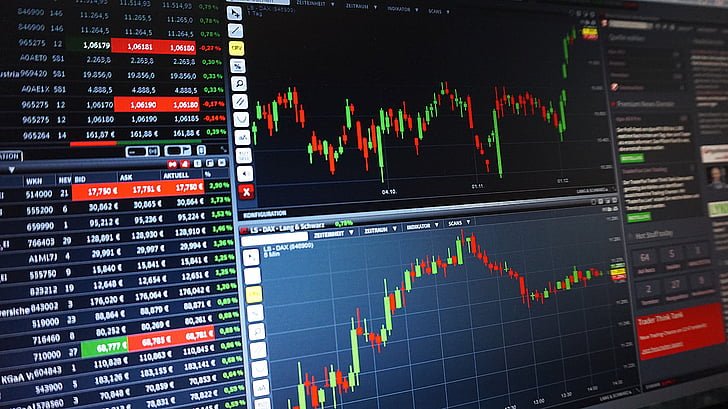Do you want to know How To Start A Forex Trading Business? End your search here because you have landed the perfect spot and we will help you on your way to becoming a victorious forex trader in no time without you having any experience in trading in this field.
Buying and selling currencies, a trading activity is referred to as forex trading or foreign exchange trading. Consequently, it is also called independence trading. The advantage of being flexible in the number of hours you work is this business has many potential sources of revenue.
It will allow you to connect with people from different continents, and you may attain high earnings as well. Nevertheless, such business still involves a lot of work, data, attention, and organization, regardless.
Having currency pairs, reading and analyzing charts, making trade strategies, and managing risks in the future will be some of the basic concepts of forex trading, which will be discussed here in this guide. Also, you will have all the helpful information to navigate these quite dynamic surroundings.
This guide will help you become an expert in currency trading, whether a beginner or a pro trader. They will teach you how to build a Forex Trading Business from scratch.
Table of Contents
Understanding The Forex Trading Business
The Forex Trading Business market (or forex market) is the largest and most active stock market in the world, and this brings in a plethora of players, traders, and participants from different countries, industries, and sectors on a global scale.
Its opening hours are 24 hours a day, and it is operational on working days, and visitors use and sell coins in place. Unlike other financial markets, which have a central exchange for trading, the foreign exchange market doesn’t have one. It is no longer a single bank but a main platform connecting the country’s banks, other financial institutions, and individuals.
However, to be good in the FX trading arena, you must first develop the necessary skills for the market’s operation. Within forex trading, some factors move the market, ranging from economic indicators, geopolitical occurrences, and investors’ sentiment.
In the forex market, currencies are traded as pairs, and people buy or sell them worldwide. Each currency pair you can see on this globe will have a corresponding currency exchange rate specific to these two currencies. The pairing of EUR/USD represents the exchange rate for a single euro to a single dollar in the United States.
Benefits Of Forex Trading Business
One of the biggest reasons the Forex Trading Business is famous among many entrepreneurs is its countless positive aspects. First, trading hours in the Forex market are variable and open 24/5 as opposed to the traditional trading hours worldwide, which operate during weekdays between 08:0 am and 08:00 pm.
Unlike other markets, the currency market works 24/7. This allows traders to exploit the market opportunities at the most convenient time. This type of flexibility is especially suitable when working a full-time job and a new startup simultaneously.
Additionally, forex trading is always available everywhere in the world. Compared to other traditional businesses, forex trading is different in that it can be done anywhere in the world as long as you have a secure internet connection.
In contrast, other businesses must be physically present to function. One can investigate new markets and take advantage of favorable foreign exchange rates thanks to their broad reach.
Moreover, one of the pluses of currency trading is that it gives you the opportunity for infinite gain. The foreign exchange market is beautiful to those who take advantage of the trading opportunities and risks. At some point, traders can sustain their income by chart reading and timing the market with proper information, talent, and strategy.
Standard Forex Trading Terms And Concepts
A newbie Forex trader has to be able to use trade terminology and market principles as a part of this field. Some essential terms to be aware of are as follows: Some fundamental concepts that come to mind are:
1. Pip: In Forex, the market for trading currencies, a pip means an infinitely small unit of price change in which the currency pair’s price movement is represented. The ‘pip’ size is 0.0001, and the fourth decimal place is displayed for most currency pairs.
2. Spread: A currency pair’s spread, the difference between ask and bid prices, sets how wide or narrow a spread is. It has become a pip that usually stands for transaction costs.
3. Leverage: A lower capital trader can manage a more excellent market position via leverage. Leverage is the dual-faced sword that can make a profit twice as large and lead to a considerable loss; therefore, it should be used cautiously.
4. Stop-loss order: A stop-loss order is a command given to a broker to close the trade at a certain level determined by the market value. It empowers entities to keep losses to a minimum and maintain risk management.
5. Take-profit order: A trader instructing his broker to close the transaction when a sure profit has been reached is known as a take-profit, or TP, order. By doing this, traders can guarantee profits by concluding a deal at predetermined prices.
Steps To Start Forex Trading Business
The information on the foreign exchange market and its benefits is now within our grasp, and we are ready to move and look at a method of starting the foreign trade of currency.
1. Educate yourself: Forex Trading Business implies knowing several things and possessing problem-solving qualities. Firstly, you need to learn the significant components of forex trading and, for example, understand technical and fundamental analysis, trading strategies, risk management, and market psychology.
The Internet offers a multitude of video and text tutorials, online courses, and books, which are enough for becoming an instant expert.
2. Set realistic goals: Your initial trade on Forex is a big step, and you should make it a point to have a clear goal that is practical and aligned with your objectives. Determine how much is available to construct the budget and divide the money wisely.
Afterward, set realistic goals for yourself. Self-set goals are essential to avoid turning in a direction you do not want to follow or not to lose confidence. Therefore, you should control your feelings and actions and move forward.
3. Choose a reliable broker: The selection of the right forex dealer will be an issue that will determine your trade performance the most. Perform research and choose a broker that is under regulation and reputable; clients enjoy tight spreads and high leverage and deal with a friendly trading platform. The natural course would be to allocate some time to choose a broker from the possible interpreters to compare brokers and eventually select the best one.
4. Create a trading plan: A trading plan is literally the market’s road map that will determine your procedures. This plan aims to identify your trading goals and answer them with the trading plan that will articulate the strategy, rules for execution that will be used to meet this goal, and risk and capital management. A trade plan with consistent guidelines will give you the power to make decisions that are not influenced by emotions.
5. Start with a demo account: Most brokerage firms provide you with a free trial account so you may practice with virtual money. Use this opportunity to evaluate your trading approach and familiarise yourself with the trading platform before trading with real money to gain experience and confidence.
Choosing A Forex Broker
Choosing a reputable forex broker will undoubtedly be a top priority when a forex trader operates. A reliable broker who respects your interests will be essential in improving the performance of your trade and your trading journey experience.
1. Regulation: Ensure that the agent operates under the authority of an admired and reputable financial regulator by the name of those mentioned above. The regulation works on the protectorial role of the trader and prevents corporations from taking actions that will be less fair or transparent.
2. Trading platform: The trading platform will act as your best friend in this universe of currency trading, where all the market participants are located. It will serve as an easy-to-use tool to start sailing. Try out different transporters’ trading platforms before making your final choice so that your expectations and requirements are met.
3. Spreads and commissions: Check the different spreads and commissions preseeded by the brokerage companies. Low spreads and commission-free transaction platforms are of great relief as they pose no risks to the funds of individual traders and, instead, allow them to lower their trading costs and earn more from every trade.
4. Leverage: Make sure the firm offers all popular types of margin trading, such as spot, short-term, and long-term. Through the principle of leverage, the market opportunity will be included in the upside; thus, as high as well can be the loss that might result from it. Choose the right leverage level which is linked to your scope of risk tolerance and trade techniques.
5. Customer support: Besides the broker being dependable, he should be ready to provide the best service. The timely and personalized customer service will make a difference, especially if the trader needs urgent help.
Developing A Forex Trading Business Strategy
Effective traders begin with a solid trading strategy that arises from their understanding of the market. So, a trading strategy is an ordered list that includes some rules and suggestions that guide you in finding a trading mate and also give you a chance to make difficult trading decisions.
1. Define your trading goals: You must choose the trade you want to participate in and name your objectives accordingly.
2. Choose a trading style: Along with numerous trading styles, there are options such as scalping, trend following, and even long-term investing. Each of them rests on a particular theory and concept, and each needs a separate application to be practical. Choose your trading style, depending on the style of trading that best fits your character, lifestyle, and risk tolerance.
3. Technical analysis: Technical analysis implies working with the data of historical prices through different means to identify hourly and daily patterns to determine future rates. Have some options of technical analysis methods that might fit into your trading style, and then learn how to use them.
4. Fundamental analysis: By studying macroeconomic indicators and news about the market and global factors that influence the currency exchange value, fundamental analysis can determine the purpose of the currency swings. Focus on economic calendars, the banks’ information, or the information from different countries, which may ultimately determine the fate of the foreign currency trading market.
5. Risk management: Developing a risk management plan is critical, and you must ensure that your money stays in your pocket. The first step to success as a beginner trader is to decide how much of your capital you’re ready to lose in a trade and set stop-loss and take-profit levels using proper money management techniques.
6. Backtesting and forward testing: To start, test your strategy with the help of historical data and implement it to find out the viability and effectiveness if it can make enough change. The field search for problems bestowed upon the worker the ability to, quicker, focus on issues that needed repair or that must be amended. As the subsequent move, empower the objective, impartial, and perform a victory lap of the strategic plan results through a live, unbiased strategy turn to. It would help if you started by testing the demo account to be sure it works well.
7. Continuously evaluate and refine: The spot market moves around, and your trading (dealing with the volatile market) has to be sophisticated because of the fluctuations. Evaluate the efficiency of your strategy through continuous monitoring while identifying those areas in which you need to add more resources and those that you need to reduce or do away with, without forgetting that adjustments must be made every now and then.
A genuinely successful trading strategy involves the education of two aspects whose change is one of the most important for the efficient execution of the plan.
Risk Calculation In Forex Trading Business
Risk management is a silver bullet of Forex Trading Business. You should do it right and stick with a winning strategy. It helps through risk management and capital control and reduces the chances of significant losses being incurred. Here are some risk management practices to consider: Below are specific risk management techniques that can be of great use:
1. Set a risk tolerance: Therefore, you should determine how much money you are willing to invest in one trade, adhere to this amount, and forget about changing it. A general guideline is to invest at least 2% of your trading money in any particular deal by identifying single or multiple trades.
2. Use stop-loss orders: Why don’t you put in skid-stops to avoid the most immediate and unavoidable losses beforehand? Jan, your loss limit either sacrifices technical analysis or undertakes risk management. In this line, you will find the means of survival since you will recover before the losses go beyond the limits and become more prominent than they already are.
3. Diversify your portfolio: Do not leave only one project or initiative at the expense of others (broadening your focus of activities). The conclusion that there is no need for a monoculture is beneficial. Diversifying your trading is a must to succeed in an area of trading. That is to say, you are dealing in different currency pairs and use more trading strategies. In addition, it ensures that the cataclysms are dispersed along the band of misfortunes and that the loss is not too hurtful due to the effects they may result in.
4. Avoid overtrading: In such an instance, no one will take rational measures but is affected by hasty or unfounded judgments. Please do not create any situation that will tempt you to divert from your trading strategy. Only enter the trade if all your criteria are met. Surprisingly, quality is undermined in the name of quantity there.
5. Manage leverage wisely: Leverage’s overexploitation is a quick way to either shut down or bolster the gains. Remember that you’re on your shoulder to prevent default, cut down on debt, balance it, and don’t allow your business to take risks that aren’t necessary. To trade safely, consider the effect of leverage on your account type and select the critical approach size expected to yield maximum profits.
6. Stay disciplined: Inventional trade may lead to problematic effects on the trader, such as his silence and entering unprofitable transactions. Stick with your trading plan and execute trades according to your risk rules. Otherwise, when trading due to fear or greed, you would be trading impulsively, thus missing opportunities.
Other Forex Trading Tools And Resources
You should use various elements of the trading market to have an excellent experience and become more professional; thus, you will find a lot of tools and resources. Here are some essential tools and resources you should consider. Here are some basic tools and resources you should consider:
1. Trading platforms: Go for one of the proven exchange services that provide traders with advanced charts, technical indicators, and real-time market updates. Known trading platforms such as MetaTrader 4 (MT4) and MetaTrader 5 (MT5) are the primary arms of the industry.
2. Economic calendars: Make sure you are constantly monitoring economic calendars, which will provide you with the needed information on key economic events, announcements by central banks, and other news that typically moves the market. A financial calendar softens the impact of the market moving up or down.
3. Technical analysis tools: To determine the trade opportunities on price charts, technical analysis tools such as trend lines, support and resistance levels, moving averages, and oscillators can be used.
4. Trading journals: Maintain a journal to show your trades, record your thoughts and feelings, and evaluate your performance. A trading journal is a tool that allows you to notice patterns, improve what is positive, and eliminate what is negative in your trading approach.
5. Online communities and forums: Get to the associated forums and communities online to bounce knowledge and ideas with other traders and seek guidance and lessons from unrotated traders. Building a relationship with a group of individuals who share the same goal can provide essential support and knowledge.
6. Educational resources: The knowledge base to improve your trading skills is vast, and you will find many online courses, webinars, and other educational resources. Be bold in investing time in continuous learning, and keep yourself acquainted with the latest trends and tools in Forex trading.
Conclusion: How To Start A Forex Trading Business
Setting up your Forex Trading Business will be equally exciting and profitable. Your employee may emerge as a stock master and attain financial freedom through financial independence. However, every trader must possess the necessary knowledge, skills, and analytical thinking to succeed.
This article, written for people who want to try foreign exchange trading for the first time, is about the basics of forex trading, i.e., understanding the forex market, its advantages, standard forex terms, and notions, starting to trade, choosing a broker, setting a strategy, risk management, and forex trading tools and resources.
This is not a way of becoming rich overnight. It has two basic principles: persistence and self-control, readiness to learn throughout life, and risk management. You can realize your financial goals by trading on the Forex market visibly profitable with the right strategy and dedication.
The world of Forex is waiting for you to discover if you want to know How To Start A Forex Trading Business and start your way to mastering this kind of art.
Follow Probusnesshacks for more business insights!







